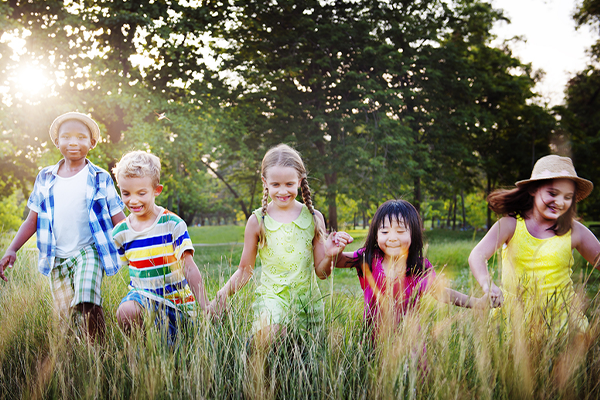They’re there to help you with homework, build a fort, or fix your hair. They help you learn how to work with someone else, can have a good (or bad!) influence on how you act. They teach you how to solve problems, keep secrets, and are just here for you.
Along the way, great friendships help keep depression and anxiety away, too.
“Friendships are the building blocks of a happy adulthood as well as a happy childhood,” said Dr. Alex Mabe, a pediatric psychologist at the Children’s Hospital of Georgia. So it’s no wonder that we often worry: Is my kid making friends?
Popular Vs. Shy
If your child is popular, you might not worry about friendships. But if your child is shy, you might.
Those attitudes aren’t always accurate, said Mabe. “There’s a difference between popularity and having friends,” he said. “Lots of people are popular but aren’t always liked. And children who aren’t extroverted can still connect with other people and have good friends.”
What Gets Your Kid in the Door
“The reality is, the good-looking kid attracts more attention,” said Mabe. “It’s not necessarily fair, but it’s true. Being athletic, doing well in school, even having material resources: These don’t guarantee lasting, high-quality friendships, but it gets you in the door to be able to initiate relationships.”
Children who tend to be better at making friends might also act this way:
- Able to ask themselves, “How can I fit in?”: These kids more easily take cues from other kids in an activity or group, then figure out how they can be a part of the action, whether that’s telling a joke or taking the lead, for example.
- Are agreeable, cooperative, honest, and polite: Good manners might be old school, but we all tend to like someone better if they have them.
- Have a good sense of humor: Because we all like it when someone is funny.
- Establish common interests: Whether your child is into football or Legoes, it’s easier to find friends when they like the same things you do.
- Respond when other kids show interest: When other kids invite them to join in, these kids jump right in.
- Are good at negotiating and compromise: In other words, your child knows how to be cooperative, which is a trait that effective leaders tend to have. For example, your child is good at taking turns, as in, “Today we’ll play your game, and tomorrow, we can play my game.”
Giving Friendship a Boost
For parents wanting to help teach their child how to make friends, try showing instead. “This means parents who are displaying good pro-social behaviors, who balance discipline with nurturing, and who demonstrate good communication models, helping children discuss problems and solve problems together,” said Mabe. “These are fundamental social skills that can be learned at home.”
Playdates—or organized activities with another child—are also a great way to learn these skills. Ideally, it’s your child with one other child, with the parents present. You can coach your child ahead of time on games or toys he or she could suggest, then subtly help guide play to help your child develop better social skills.
Being part of a caring social community is also huge. Maybe that’s church, dance, sports or music: Both parents and kids involved in these activities tend to come together to support one another and just have fun.
Mabe also says to teach your child it’s OK to be friends with all different types of people. “We want to emphasize a sense of belonging and the value of diversity,” he said.
Why Friendships Are More Important Than Ever
“The quality of children’s friendships have deteriorated over the past 10 years or so, and it’s directly attributable to the new electronic age,” said Mabe.
So get children away from video games and social media—at least some of the time. “What we’re learning is that there’s not as much face-to-face time, and social media communication is not at all the same quality of social interaction,” he said. “We need to be careful that this generation is learning the basic social skills to communicate via face-to-face conversations.”
So when kids get home, spend time together as a family, invite friends over, and enjoy real community once in a while. “Talking to each other, sharing a meal together—those are two very positive things that benefit social connection and the ability to relate to one another,” he said.




